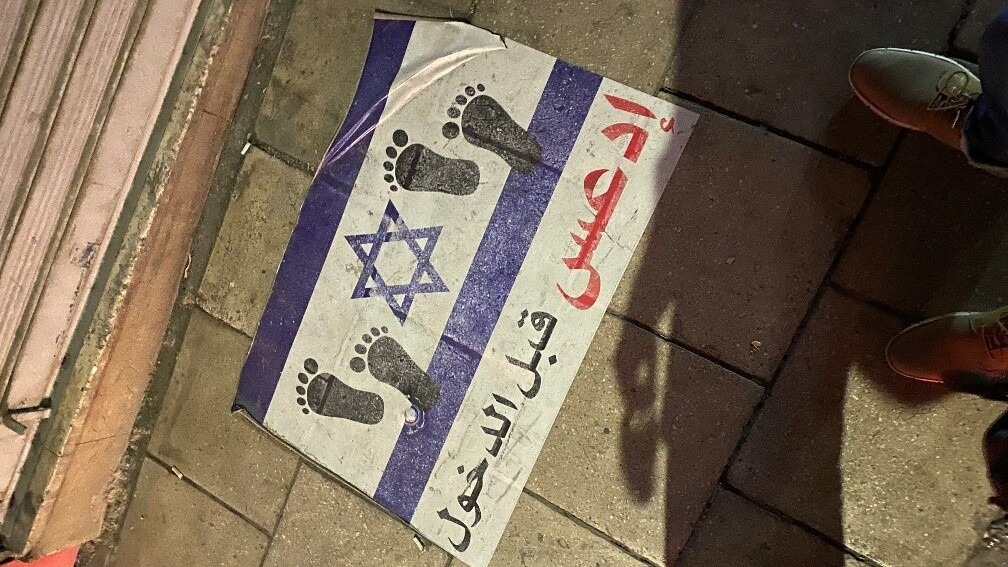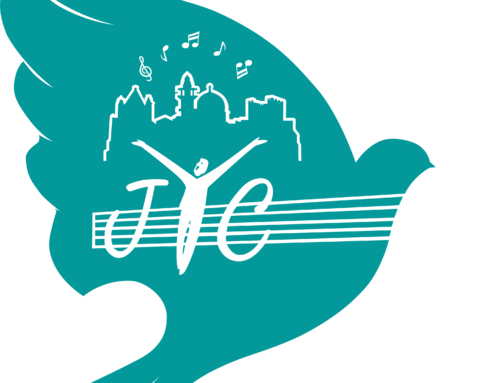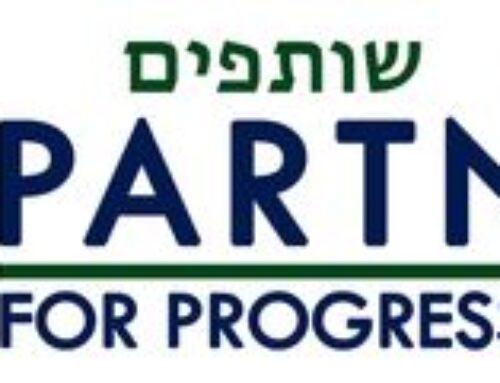Personal Reflection: Where a Jew in Jordan Stands
By Avraham Spraragen
During my six months as a lone Jew in Jordan earlier this year, I was forced to decide whether to literally step on the main symbol of Judaism, lest I refuse to stand with the Palestinian people.
The Star of David, or Magen David, which predates Zionism as a universally recognized Jewish symbol, is painted on sidewalks throughout Amman, primarily as protest of the Israeli occupation. Derived from the seal of King Solomon and later adopted in 17th-century Prague as the distinctive symbol of the Jewish people, the Magen David is also painted on garbage cans all over the capital, in front of private homes and in public spaces alike. Many Jordanians deliberately trample upon this Jewish symbol whenever they walk the streets of Amman, and associate it with taking out the trash.
Crucially, the Magen David is sometimes, but not always, depicted by Jordanians in the center of an Israeli flag, that is, between two horizontal stripes. The symbol is also not always colored blue, which may reflect a distinction between the ancient Jewish faith and the modern Zionist movement.
To step on the symbol of Judaism or to use trashcans painted with the Star of David would be a symbolic betrayal of my people. On the other hand, to step around the symbol and to use a different trashcan is perceived by certain elements of Jordanian society as a betrayal of the Palestinian people. Neither of these betrayals are necessary. I should not have to step on Judaism to stand with Palestine.
For some Jordanians who trample upon the Star of David, their intention is an exclusively anti-Israel, rather than anti-Jewish, protest. It is a routine, almost subliminal gesture of solidarity with their Palestinian brethren under occupation. For most other Jordanians, this gesture is neither anti-Israel nor anti-Jewish; it simply goes unnoticed. This majority will not step around the symbol or use a different trashcan, as I do, nor will they actively protest this desecration of Jewish symbology. Unfortunately, there also remains a subsection of Jordanian society for which stepping on the Magen David is an intentional act of protest against both Israel and Jews. This minority steps on our symbol in their daily lives, with deliberate antisemitic intent.
Regardless of these varied intentions, walking over the Star of David when entering the Roman Theater, a top Amman tourist attraction, reinforces the false conflation of Judaism and Zionism. This lack of ideological distinction, in turn, lends itself to the wrongful Jordanian associations of Jewish symbols with Zionist offenses. Even those who may mentally distinguish between them when stepping on the Magen David do so without making their distinction evident, which inadvertently plays into such wrongful association. Other Jordanians, unaware of the Judaism-Zionism distinction, when they may encounter a synagogue abroad (there are none in Jordan) emblazoned with the very symbol that they trampled upon all their lives (whether for anti-Israel or anti-Jewish reasons), will no doubt view the Jewish faith as a representation of their Israeli victimizer. Stepping on the Magen David for anti-Israel reasons also provides cover to those who step on the symbol for anti-Jewish reasons. Hence, the consequence of Jordanian desecration of Jewish symbology to protest Israeli occupation, whether intentional or not, is tantamount to fomenting antisemitism.
Not only does the act of trampling upon the Star of David, even if it is depicted in the center of an Israeli flag, run the risk of antisemitism, it is also ineffective. The tactic pits Jews against Palestinians, thereby undermining the cause of Palestinian liberation. Instead, Jews and Palestinians should avoid mutual insensitivities. We should fight the ongoing Israeli occupation and resurgent global antisemitism together.
This picture is complicated further by the global imperative to refrain from instructing victims on how to protest against their victimizer. As the victims of Israeli occupation, Palestinians are in the precarious position of having to protest against Israel using Zionist symbolism which, inconveniently, relies heavily on Jewish symbolism. Ironically, Palestinians were put in this position by the Zionist movement, which claims to operate on behalf of the Jewish people and therefore adopted its symbology. This begs the difficult question of whether the burden is on Palestinian victims to avoid using Zionist symbolism because it runs the risk of antisemitism, or whether the Zionist movement is ultimately responsible for that risk. Indeed, it is not the fault of Palestinians that the Jewish Star of David appears on the Israeli flag badges worn by IDF soldiers. Surely, if the Palestinians were victimized by any other movement, they would protest using the symbols of that movement. Then again, there must be some responsibility on the part of Palestinians to distinguish Judaism from Zionism. Understandably, many Jordanians have yet to address that challenge.
Although a fluent Hebrew speaker, the problem of unfortunate associations also prohibited me from speaking the language of my people in Jordanian public settings. Recognizing that Hebrew is the language that my Palestinian friends in Jordan associate with their victimizer, I spoke with them in English (and Arabic) instead. At the same time, I lament that I could not share with my friends the language of my heart. Like these Palestinian Jordanians raised in the rich and expressive Arabic tongue, I grew up in the Jewish diaspora imbued with the beauty of Hebrew. It is the language of my childhood bedtime stories, of the songs my family sang on Shabbat, and of my Jewish education. My two Hebrew-speaking parents gave me Hebrew first and middle names, Avraham Binyamin. Hebrew, and Judaism are unapologetically who I am.
It is therefore heartbreaking for me that the Hebrew language, the Star of David, and other Jewish symbols, which should represent justice and peace, instead trigger the worst of connotations for so many in Jordan. Only through forging a shared Jewish- Arab future, in which Hebrew and Arabic are jointly spoken, can we symbolically mend the pieces of this broken heart.
—

Avraham Spraragen is a dual JD-MA Arab Studies degree candidate at Georgetown University. He previously studied at the Hebrew University of Jerusalem and Tel Aviv University.






This saddens me to my core. There will never be peace in the Middle East, and I’ve never concluded that as much as this piece caused me to conclude. Heartbreaking.